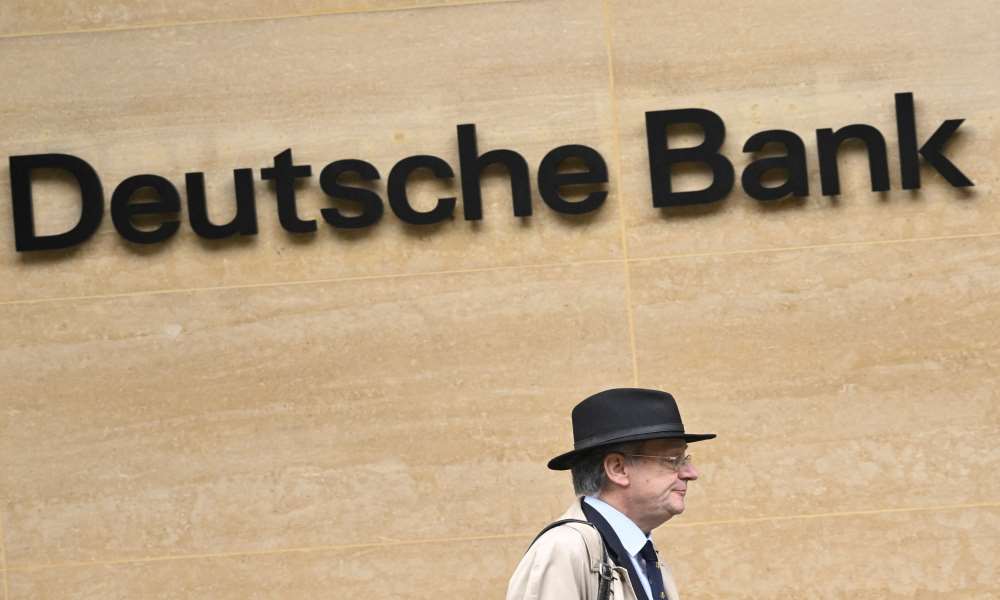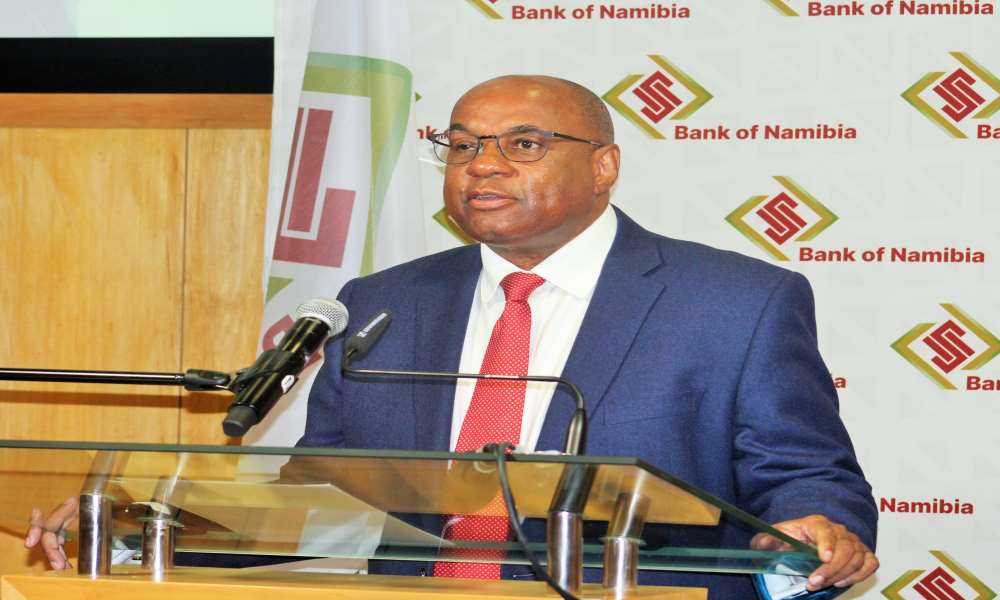Global bank fears spark stress signals
Namibian system resilient, assures BoN
As the global banking sector reels from the sudden collapse this month of SVB and Signature Bank, the Bank of Namibia says the local banking system has solid capital and liquidity buffers in place to withstand risks emanating from internal and external shocks.
European banking stocks fell sharply on Friday, with Deutsche Bank and UBS knocked by worries that actions by regulators and central banks have not yet contained the worst problems to face the sector since the 2008 global financial crisis.Financial market stress indicators were also again flashing warning signs more widely, with the euro falling against the US dollar and bond yields sinking.
Deutsche Bank shares fell for a third day, dropping more than 12% after a sharp jump in the cost of insuring its bonds against the risk of default.
Shares in Germany's largest bank have lost a fifth of their value so far this month and the cost of its 5-year credit default swaps (CDS) - a form of insurance for bondholders - jumped to a four-year high on Friday, based on data from S&P Market Intelligence.
"Deutsche Bank has been in the spotlight for a while now, in a similar way to how Credit Suisse had been," said Stuart Cole, head macro economist at Equiti Capital.
"It has gone through various restructurings and changes of leadership in attempts to get it back on a solid footing but so far none of these efforts appear to have really worked."
Deutsche Bank declined to comment.
The pain was spread across the sector, with the index of top European banks falling 5.1% and British banks losing 4%, down for a third straight session.
"We are still on edge waiting for another domino to fall, and Deutsche is clearly the next one on everyone's minds (fairly or unfairly),” said Chris Beauchamp, chief market analyst at IG.
US buffer
The fresh falls in Europe came as investors were looking to see how far US authorities would go to shore up the banking sector, particularly fragile regional lenders.
US Treasury Secretary Janet Yellen told lawmakers on Thursday that bank regulators and the Treasury were prepared to make comprehensive deposit guarantees at other banks, as they did at failed Silicon Valley Bank (SVB) and Signature Bank.
Shares of major US banks JPMorgan Chase & Co, Wells Fargo and Bank of America fell more than 2% in premarket trade on Friday.
Regional lenders, the focus of the strongest investor concerns, also declined, with First Republic Bank, PacWest Bancorp, Western Alliance Bancorp and Truist Financial Corp falling between 2% and 5%.
"Underlying sentiment is still cautious and in this environment no one wants to go into the weekend risk-on," said Nordea chief analyst Jan von Gerich.
The global banking sector has been rocked since the sudden collapse this month of SVB and Signature Bank.
Different turmoil
Policymakers have stressed the turmoil is different from the global financial crisis 15 years ago, saying banks are better capitalised and funds more easily available.
But the worries spread quickly, and on Sunday UBS was rushed into taking over Swiss rival Credit Suisse after it lost the confidence of investors.
Swiss authorities and UBS are racing to close the takeover within as little as a month, according to two sources with knowledge of the plans.
Separate sources told Reuters that UBS has promised retention packages to Credit Suisse wealth management staff in Asia to stem a talent exodus.
Brokerage group Jefferies cut its recommendation on UBS stock to "hold" from "buy", saying the acquisition of its former rival would change an equity story based on a lower risk profile, organic growth and high capital returns.
"All these elements, which is what UBS shareholders bought into, are gone, likely for years," it said.
UBS shares were down 7% on Friday and its five-year CDS shot up 14 basis points.
Namibia
The Bank of Namibia (BoN) on Wednesday issued a statement, saying the country’s banking system remains resilient and sound, with solid capital and liquidity buffers in place to withstand risks emanating from internal and external shocks as the world reels from the closure of a number of regional banking institutions in the United States and a global systemically important bank based in Europe.
Banking institutions in Namibia, as at 31 December 2022, allocated only 34% of the banking sectors’ exposure to government bonds, unlike one of the failed US institutions, which is estimated to have held as much as 55% of its assets in long-duration fixed income securities, the BoN said.
Additionally, the local banking sector holds shorter-term government instruments that enable them to ensure that their assets and liabilities tenures are aligned, the central bank said.
“This makes it easier to cover any possible liquidity mismatches. Moreover, the Namibian banking sector held a liquidity buffer of N$11.1 billion during December 2022, indicating that liquidity needs can be met.”
Despite the ongoing global developments, the Namibian banking system remains liquid and well-capitalised, the BoN stressed.
“In this regard, the total risk-weighted assets stood at 17.0% at the end of December 2022, higher than the statutory minimum risk-weighted capital requirement of 10.0%.
“Similarly, the liquidity position of the banking sector stood at 17.8%, N$10.4 billion above the statutory minimum requirement. Maintaining adequate liquidity is a bank’s lifeline, ensuring it can honour its obligations as they become due,” the BoN said.
According to BoN governor Johannes !Gawaxab: “We are duty-bound to monitor these current global developments and any spill-over effects. However, as things stand, our institutions are insulated from these events, and our public members can be assured of the stability and soundness of our institutions.” – Own reporting and Fin24/Reuters




